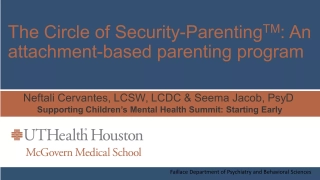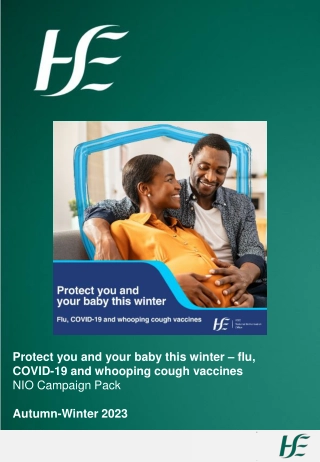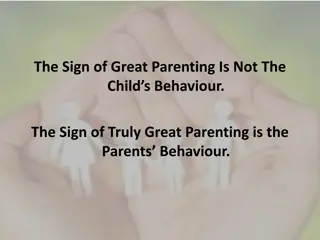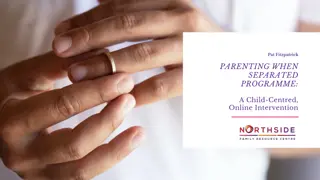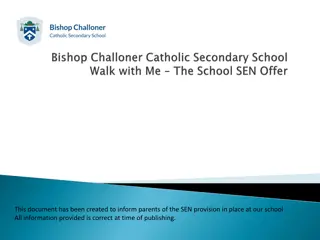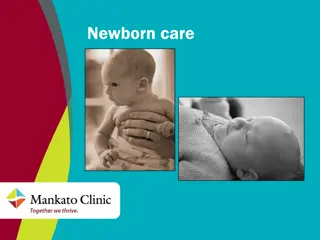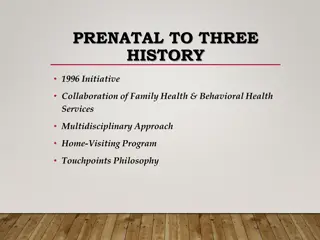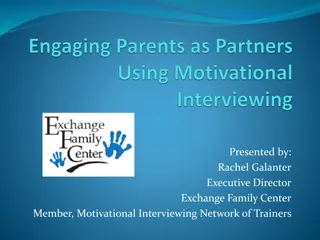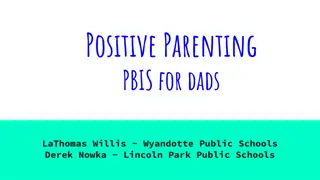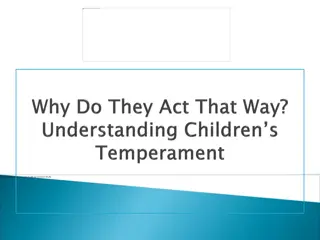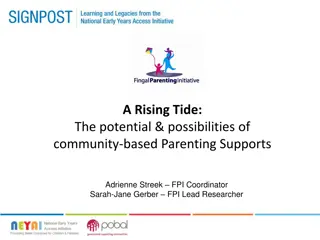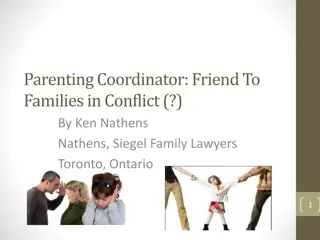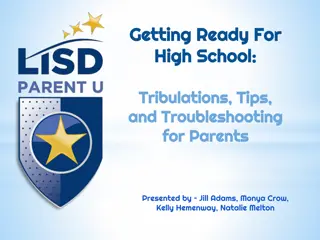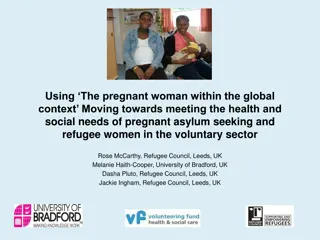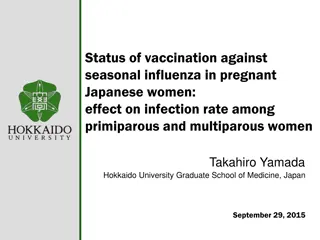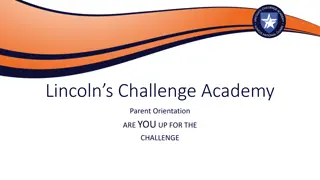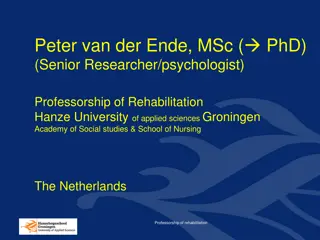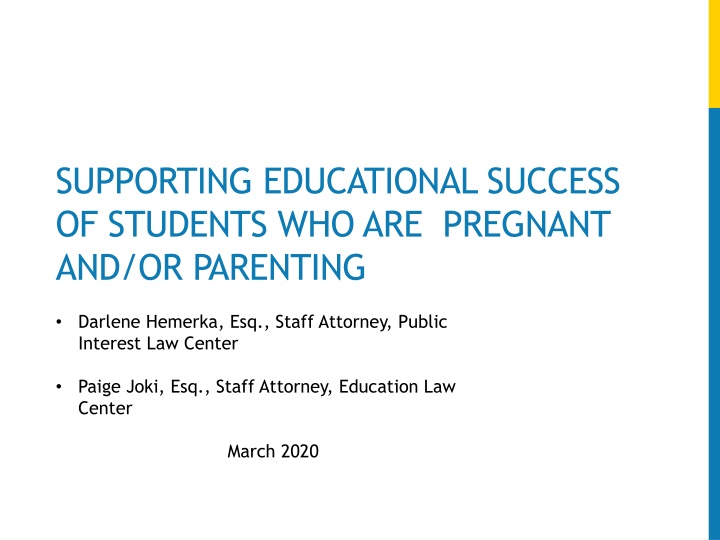
Supporting Educational Success of Pregnant and Parenting Students in Philadelphia
Learn about the efforts of the Public Interest Law Center and Education Law Center-PA in advocating for the educational rights of pregnant and parenting students in Philadelphia. Discover key legal landscapes, gaps in educational support, proven solutions, and transition services for these students. Understand the numbers and challenges faced by young parents in the city.
Download Presentation

Please find below an Image/Link to download the presentation.
The content on the website is provided AS IS for your information and personal use only. It may not be sold, licensed, or shared on other websites without obtaining consent from the author. If you encounter any issues during the download, it is possible that the publisher has removed the file from their server.
You are allowed to download the files provided on this website for personal or commercial use, subject to the condition that they are used lawfully. All files are the property of their respective owners.
The content on the website is provided AS IS for your information and personal use only. It may not be sold, licensed, or shared on other websites without obtaining consent from the author.
E N D
Presentation Transcript
Darlene Hemerka, Esq., Staff Attorney, Public Interest Law Center Paige Joki, esq., Staff Attorney, Education Law Center March 2020 SUPPORTING EDUCATIONAL SUCCESS OF STUDENTS WHO ARE PREGNANT AND/OR PARENTING Darlene Hemerka, Esq., Staff Attorney, Public Interest Law Center Paige Joki, Esq., Staff Attorney, Education Law Center March 2020
WHO WE ARE The Public Interest Law Center ( The Law Center ): uses high- impact legal strategies to advance the civil, social, and economic rights of communities in the Philadelphia region facing discrimination, inequality, and poverty. We use litigation, community education, advocacy, and organizing to secure their access to fundamental resources and services. Education Law Center-PA ( ELC ): is a non-profit, legal advocacy organization dedicated to ensuring access to a quality public education for all children in Pennsylvania.
LEGAL DISCLAIMERS AND DISCLOSURES The information that follows is not legal advice It is a summary of the current law in this jurisdiction on selected topics Legal claims are very fact-specific Always contact an attorney when faced with legal questions There is no potential conflict of interest or financial interest by the faculty and/ or planners of this activity to be disclosed Neither Organization has provided commercial support for this activity There is no endorsement by our organizations or the University of Pittsburgh or ANCC of any commercial products discussed / displayed in conjunction with this educational activity The entire session and the participant feedback tool must be completed to earn contact hours
OUR AGENDA Background The Numbers Key Rights Educational Experiences of Students Who Are Expectant and Parenting Numbers High-level overview of the legal landscape Current Gaps in Specific Educational Supports for Expectant and Parenting Young People Proven Solutions + Proposed Recommendations Overview of Students Rights in Transition Planning and Services Components of Transition Plans Examples of Transition Services Information about the Office of Vocational Rehabilitation ( OVR ) Practice Tips and Key Takeaways
THE NUMBERS In Philadelphia, approximately 6,000 young people are transition age (14- 21), and entitled to transition services in their IEPs The City of Philadelphia s rate of youth who are parents is 35.2 per 1,000 young people Nearly double the rate in the Commonwealth as a whole Higher than the national average Students may also face other intersectional barriers, such as experiencing homelessness or housing insecurity, or being a student in care
RIGHT TO AN EDUCATION In Pennsylvania, a student has the right to attend public school from age 6-21 years old, or until she graduates (whichever is first) This means a student can attend public school until the end of the school year in which she turns 21, or graduates Right is unimpacted by pregnancy or parenting Students who are eligible for special education programming, can graduate either with credits or by successful completion of IEP goals
RIGHT TO SPECIAL EDUCATION Individuals with Disabilities Education Act (IDEA) The IDEA is a federal law that provides students with disabilities the right to receive an education to meet their unique needs. The main tool used to fulfill the purpose of the IDEA is a student s Individualized Education Program (IEP). Present level of academic performance and functional achievement Measurable annual goals Specific services to be offered Must be reviewed on a yearly basis Remember, the IEP is a legally binding document
SEEING STUDENTS FULLY Students often face problems that are made invisible and siloed Students who are expectant Students who are parenting Students who are eligible for special education services Students reported school staff were not able to see them both as parents AND as students with unique educational needs Supports that are often commonplace or default in workplaces are uncommon in schools Leave, standardized accommodations, plan for leaving, and a plan to return
KEY RIGHTS OF EXPECTANT AND PARENTING YOUNG PEOPLE
TITLE IX (FEDERAL LAW) Title IX (Federal Law) Students who are pregnant are entitled to equal access to school + school activities Students cannot be discriminated against or excluded because they are pregnant or parenting Sex discrimination under the law Sex discrimination applies to discrimination on the basis of pregnancy Prohibition against sexual harassment Schools must take steps that are prompt and reasonably calculated to end pregnancy-related harassment, prevent it from recurring, and eliminate hostile environments
PENNSYLVANIA LAW Guarantees equal access to school and extracurriculars for students who are pregnant A "student may not be excluded from the public schools or from extracurricular activities because the student is pregnant. 22 Pa. Code 12.1(b)(2). Schools cannot automatically disenroll students and transfer them to different schools Schools MUST accommodate a student s needs There can be separate schools or programs for students who are parenting, but they must be VOLUNTARY
SCHOOL DISTRICT OF PHILADELPHIA POLICY 234 (UPDATED IN 2018) Provides instruction to staff and administrators Apprises students of their rights Right to return to their neighborhood school Details potential student accommodations Explains how a student can report violations of her rights Each school should have an identified Teen Parent Liaison who will assist the student in: Understanding rights Access resources inside and outside of school Reporting rights violations
SHORTCOMINGS OF POLICY 234 Homebound Instruction: NO homebound instruction absent an absence of over 4 WEEKS with an accompanying doctor s note to justify the medial necessity because of an acute condition It also fails to specify how much instruction a qualifying student would receive Accommodations: Does not include standardized accommodations that would be available to ALL students in ALL schools Protocol for Return: Lacks a clear protocol to assist students who are returning to school Grades: No policy that provides guidance on what should happen to a student s grades when she is out Makeup Work: No policy that grants additional time to prepare for and completed missed assignments or tests
WHAT MUST SCHOOLS DO: DURING PREGNANCY Allow students to continue participating in their education and in extracurriculars Provide students with reasonable accommodations based on the individual students needs Treat pregnancy, childbirth, and recovery the same way as a temporary disability is treated 34 C.F.R. 106.40(b)(1) and (b)(4).
WHAT A SCHOOL MUST DO: MEDICAL LEAVE Excuse absences, as long as medically necessary Return to same academic and extracurricular activities the student participated in prior to leave Opportunity to make up any work missed while out on leave Provide the same additional services provided to students with temporary medical conditions Homebound instruction At-Home tutoring Independent study
ELCS REPORT: ELC was curious about what could be done to better support students, and ensure access to equal educational opportunities Engaged in intensive fact-gathering from students and providers to understand the experiences and needs of young people who were pregnant or parenting Centered the voices and experiences of young-people through focus-groups Reviewed local, state, and national policies and practices Developed recommendations
KEY BARRIERS Inadequate Supports to Remain IN School While Expectant Loss of Connection When Out Of School After the Birth Usually 4-6 weeks due to medical necessity Loss of Progress While Out-Of-School Lack of Formal Reintegration Process Pushed into Options That Did Not Work For the Student Alternative Programs Accelerated Programs Polices that Are Not Designed for Students As Parents/ Policy to Practice Gaps, even with existing policies
ACCOMMODATION IDEAS Later start time for school Extended time to transition from class-to-class Clear path forward after returning to school, including an individualized graduation plan complete with credit verification Providing work that was missed Private and secure place to breastfeed or express milk Place to store the pump Safe place to store breastmilk Uniform that fits Students cannot be excluded from school because they cannot wear ordinarily required uniform, while they are pregnant Larger desk Access to an elevator Permission to make frequent trips to the restroom
SOME OF ELCS RECOMMENDATIONS 1. Ensure access to academic instruction and connections with teachers and with school supports during the duration of medical leave 2. Amend the homebound instruction policy to kick in within 5 days of a doctor s note 3. Increase opportunities for students to regularly and meaningfully communicate with teachers while on leave 4. Ensure students are not funneled into accelerated or alternative programs 5. Adopt formal reintegration processes, including a graduation plan and credit verification
PROMISING PRACTICES California: later start time for young people who are pregnant and parenting young infants Michigan: a student qualifies students for homebound instruction if she misses 5 or more school days Homebound instruction includes: Minimum of two instructional periods per week Being brought assignments Supports to parents/caregivers, so that they in turn can better support the student Providing tutoring to enable students to complete the assignment Other supports Mastery: Grades are frozen until a student has returned and has had an opportunity to complete missing work. Students also reported having daily contact with teachers
KEY RIGHTS: TRANSITION SERVICES
TRANSITION PLANNING: A CRUCIAL COMPONENT OF THE IEP It is NOT optional Transition planning is the process in which the IEP team sets goals for the student s life AFTER HIGH SCHOOL. In Pennsylvania, transition planning must begin the year the student turns 14. The IEP must include measurable post school goals and transition services in addition to annual IEP goals.
COMPONENTS OF TRANSITION PLANNING Transition Assessments Post-School Goals Transition Services
TRANSITION ASSESSMENTS Can be formal or informal Ongoing process of data collection of the particular student s: Needs Preferences Interests Remember, this data provides the basis for IEP goals and services AND students must be invited to meetings where transition services are being discussed
CREATING POST-SECONDARY GOALS Independent Living Post Secondary Education Employment
THE GOOD AND THE BAD: A QUICK NOTE ABOUT GOALS GOOD After graduation, Paulo will work 20 plus hours a week at the local grocery store and be provided temporary supports through Vocational Rehabilitation. BAD Paulo will be referred to Vocational Rehabilitation for assistance with job placement.
TRANSITION SERVICES A coordinated set of activities designed to facilitate the child s movement from school to post-school activities, including further education, independent living and employment. This is the DUTY of the Local Educational Agency ( LEA ) The school district can and should partner with other agencies and organizations to provide these services. Students and parents are not responsible for finding and paying for their own transition service
TRANSITION SERVICES EXAMPLES Post-Secondary Education Assistive technology College/trade school visits Employment Work-based learning experiences ( try out the job ) Vocational assessments ( on the job assessment) Independent Living Daily living skills and travel training ( How to get from here to there ) Registering for adult services (Social Security, Office of Intellectual Disability Services, and Autism services)
OFFICE OF VOCATIONAL REHABILITATION ( OVR ) OVR: the State Agency responsible for helping people who have disabilities prepare for, obtain, and maintain employment OVR has specific money set aside for students for pre- employment transition services For more information call: 717-787-5279 OVR is required to: Attend IEP meetings if invited Work with schools to coordinate and ensure provision of pre-employment transition services
PRACTICE TIPS FOR SUCCESS A student has a RIGHT to an education Remember, for students who have IEPs, their education must meet their unique needs Student participation is key, being invested in a program is essential Integrate students strengths and input Make sure you have good data to create effective goals Think outside of the box! Be willing to keep trying and be willing to change the plan if something is not working
CONTACT INFORMATION Darlene J. Hemerka, Esq. Staff Attorney dhemerka@pubintlaw.org 267-546-1314 Paige Joki, Esq. Staff Attorney pjoki@elc-pa.org 215.703.7920

